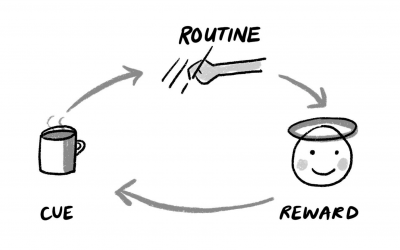Mason Currey compiled over 300 mini-biographies of the day-to-day working lives of writers, artists and creative minds in his bestselling books Daily Rituals and the second volume Women at Work. We ask him about the inspiration and obstacles people face with creative work and how they can learn to ‘wriggle through’ with habits, routines – and a few quirks.
A peek into creative habits with Mason Currey
Q: Can you tell us what are the positives of learning from ‘the best’ and what are the downsides?
Mason Currey: For readers trying to pursue their own creative projects, I think the biggest positive is just seeing that other people have gone through same difficulties you may be facing. If you’re having trouble finding the time for your creative work, or struggling with procrastination, writer’s block, or self-doubt, it can be tremendously comforting to read about how some of history’s greatest writers and artists dealt with the same obstacles on a daily basis.
The downside comes when you’re reading about the habits of people after they’ve already become extremely successful and established in their careers. These perfect-seeming daily routines, with set periods for work, walks, meals, naps, and socializing, can be entertaining to read about but also fairly discouraging. It’s easy to feel like that kind of lifestyle is hopelessly out of reach.
“it can be tremendously comforting to read about how some of history’s greatest writers and artists dealt with the same obstacles on a daily basis.” Mason Currey
Q: Your first book Daily Rituals: How Great Minds Make Time, Find Inspiration, and Get to Work was a bestseller and you published a companion volume Daily Rituals: Women at Work. Can you tell us about that and why it was important to correct the balance?
Mason Currey: Only about 17 percent of the subjects in my original Daily Rituals book were women, which is a truly dismal imbalance and something I really regret. More and more, I think it’s authors’ responsibility to avoid reinforcing this lazy version of history where all the so-called great minds just happen to be men. So I wanted to do something to redress that earlier failure.
But also, as I said above, I find that the most useful stories are the ones about people struggling toward their creative goals, and finding small ways to stay on track from day to day. Since women, historically, have faced so many more obstacles to realizing their creative ambitions, the sequel ended up being a lot more about overcoming those daily obstacles. As a result, I think it’s more relevant to your average reader, regardless of gender.
>> Read more: 4 things to learn from the daily rituals of great writers
Q: What can writers learn from other creative disciplines? Are there any which seem to have the right approach?
Mason Currey: I think there’s a lot for anyone to learn by looking at other creative disciplines. Writing is different from making visual art or composing music, but there are some aspects of the creative process that are universal. For everyone, it involves a lot of trial and error, feeling your way forward by intuition, trying to strike the right balance of effort and effortlessness. Not to mention just trying to find the time and create a sustainable daily practice.
Personally, as a writer, I’ve found a lot of inspiration from visual artists’ working processes. For instance, I was just browsing the painter Grace Hartigan’s journals from the early 1950s, and this sentence leapt out at me: “Art cannot be seized head on, it must be stalked, it is elusive.” I feel much the same way about good writing; it’s this slippery, fragile thing that you’re always trying to sneak up on.
Q: You named your newsletter after a Franz Kafka quote. How are you currently wriggling through by subtle maneuvers? Any particular strategies and compromises you’re following or quotes you’re living, working and creating by.
Mason Currey: In a 1912 letter, while complaining about his day job and living situation and lack of writing time, Kafka wrote, “if a pleasant, straightforward life is not possible then one must try to wriggle through by subtle maneuvers.” That last part has always resonated with me, and it felt like the perfect name for a newsletter that’s about teasing out these small-bore strategies and coping mechanisms in a variety of artists’ lives.
As for my own “wriggling through”—my one dumb trick has always been to get up really early and get straight to work before I have a chance to get derailed. If I get up early enough, it’s like I’m too tired to even procrastinate; I just do the thing in front of me, at least for a while.
“If I get up early enough, it’s like I’m too tired to even procrastinate; I just do the thing in front of me, at least for a while.” Mason Currey
>> Read more: Daily rituals and quirky habits: Q&A with writer Mason Currey
Q: We love your advice column. What are the most common questions you get asked?
Mason Currey: I’m enjoying playing advice columnist. So far I’ve gotten several questions from writers who are struggling with a lack of confidence and/or a feeling of weariness with their work. That’s something I can very much relate to! So it’s been a satisfying challenge to try to pull out examples of how other writers have “wriggled through” in similar circumstances, and use those as the basis for some actionable advice.
Q: Where else do you go for inspiring rituals, routines and quotes and quirks. Are there any website or newsletters you’d recommend?
Mason Currey: On Instagram, I love the cartoonist Liana Finck’s work. It’s not strictly about routines or rituals, but I feel like she’s especially brilliant at capturing the contradictions and frustrations and inherent absurdity of the creative process.
I also love Edith Zimmerman’s Drawing Links newsletter. Again, it’s not necessarily about routines or rituals—but it feels really grounded in one creative person’s day-to-day thoughts, conversations, daydreams, and minor epiphanies, and for me it provides a reliable dose of inspiration.
Q: Tell us about your writing habits and quirks and how they’ve changed over time.
Mason Currey: In the past I always wore this one particular hoodie when I was writing, and I got into the habit of writing with the hood up. It sort of felt like having blinders on, and I liked that.
But at some point I stopped wearing that and switched to this giant wool scarf that I bought a couple years ago and hardly ever get to wear outside in LA. I just drape it over my shoulders—I guess these days I don’t need blinders so much as a security blanket?
I wish I had more quirks! I drink a lot of coffee, and I switch on a white-noise machine when I really need to concentrate. Pretty dull stuff.
>> Read more: How to make time to write – 4 approaches to finding time in busy schedules
Mason Currey’s top tips for writers
1. Increase the pressure
I would recommend that writers do whatever they can to put some outside pressure on themselves. That could mean joining a writing group, finishing a magazine assignment (even a non-paying one), or just promising copy to a person whose opinion you respect. The key is to have a firm deadline accompanied by a good dose of fear and anxiety about blowing it.
2. A few hours is enough
Many great writers only actually wrote for a few hours a day. As Martin Amis has said, “I think most writers would be very happy with two hours of concentrated work.” I think that’s true.
3. Having a day job might help
While it may not be ideal to write around a day job, it is possible. Some writers, like Anthony Trollope, Henry Green, and Wallace Stevens, even found that having a job was a stabilizing influence on their work—not to mention the fact that it removed the pressure to earn a living by their writing.
4. Doubt can actually help writing
Even supposed “creative geniuses” often really struggled with their work on a daily basis. I think it can be comforting for people to know that they’re not alone in feeling doubtful and apprehensive about their creative process. In fact, that doubtful state may even be necessary for doing meaningful creative work.
5. Constant vigilance when dealing with the internet
The internet is especially effective at stealing away those periods of boredom and daydreaming that can lead to insights and breakthroughs—now so many of us fill those gaps by checking e-mail or scrolling through our favorite blogs. So I think contemporary writers and artists need to have more self-discipline than ever, and must be incredibly vigilant about setting aside distraction-free time every day.
***
Mason Currey is the author of the books Daily Rituals: How Great Minds Make Time, Find Inspiration, and Get to Work and Daily Rituals: Women at Work . In them, he compiled mini-biographies of the day-to-day working lives of more than 300 writers, artists, and other creative minds. He still relishes reading about writers’ and artists’ daily habits and has created a weekly newsletter that shares a new update of a creative person’s working day. Think of the newsletter as slo-mo Daily Rituals, Volume III unfolding in subscribers’ inboxes week by week. Read and subscribe here.
[et_bloom_inline optin_id=optin_7]




